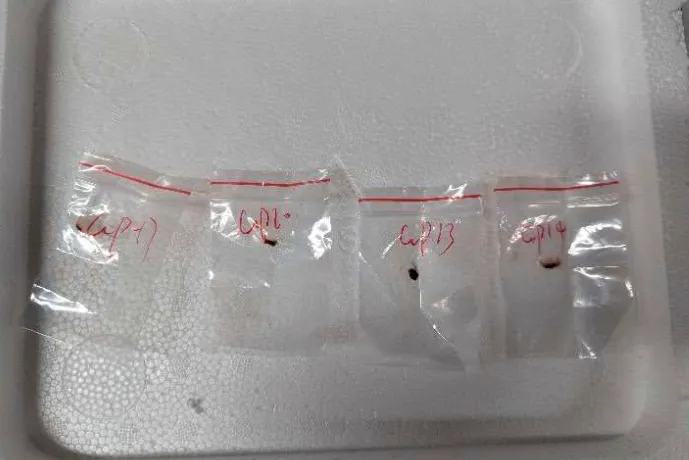A Chinese couple has been charged in the United States for attempting to smuggle large quantities of a highly toxic fungus into the country by falsely labeling it as herbal tea, according to federal prosecutors. The announcement was made on June 4 and highlights growing concerns over illegal imports of dangerous biological materials.
The couple, identified as Zhao Liang and Mei Wang, allegedly shipped more than 150 kilograms of the fungus Trogia venenata—a species known to be deadly if consumed. The fungus is believed to be responsible for hundreds of deaths in China over the past two decades, often referred to as “little white mushroom” or “Bai Mu Er” in Chinese.
According to the U.S. Department of Justice, the couple mislabeled the packages to avoid customs inspection, declaring the contents as “dried herbal tea” and “edible plant material.” The fungus was intercepted by U.S. Customs and Border Protection (CBP) agents in California after a tip-off and further tested by the U.S. Food and Drug Administration (FDA), which confirmed its toxic properties.
Zhao and Wang were arrested in Los Angeles after a federal grand jury returned an indictment charging them with conspiracy to defraud the United States, smuggling goods, and introducing misbranded food into interstate commerce. If convicted, they face up to 20 years in prison.
Federal investigators say the couple had been importing the fungus in smaller quantities for at least a year, allegedly selling it to specialty food stores and through online platforms targeting Chinese-speaking customers. No deaths or poisonings in the U.S. have been linked to the fungus so far, but authorities stressed that even minimal consumption could be lethal.
“This was not just a violation of import laws—this was a direct threat to public health,” said U.S. Attorney Martin Estrada. “We are committed to stopping dangerous substances at the border before they can do harm.”
The fungus, which grows naturally in southwestern China, has been under scrutiny by Chinese scientists since the early 2000s after it was linked to a series of sudden deaths in Yunnan province. It contains a lethal mix of amino acids that can cause heart failure, often with few warning symptoms.
Experts warn that the fungus can be mistaken for edible mushrooms, especially when dried and mixed with other plant products. “Trogia venenata is one of the most toxic mushrooms known to science. There is no known antidote,” said Dr. Lisa Chen, a mycotoxin specialist at UCLA.
In China, local governments have issued warnings and banned foraging of the fungus. However, its use has persisted in some traditional medicine circles due to widespread myths about its health benefits.
The U.S. case has raised concerns among food safety advocates about the gaps in customs screening and the rising trend of mislabeled biological imports. Officials said this case underscores the importance of vigilance in detecting and intercepting high-risk goods at the nation’s ports.
The couple is scheduled to appear in federal court later this week. Their legal representatives have not yet commented on the charges.
Meanwhile, the FDA and CBP are conducting broader investigations into possible distribution networks and additional shipments. Consumers are being urged to avoid unregulated herbal products purchased online and to report suspicious food products to the authorities.
Source; Al Jazeera



